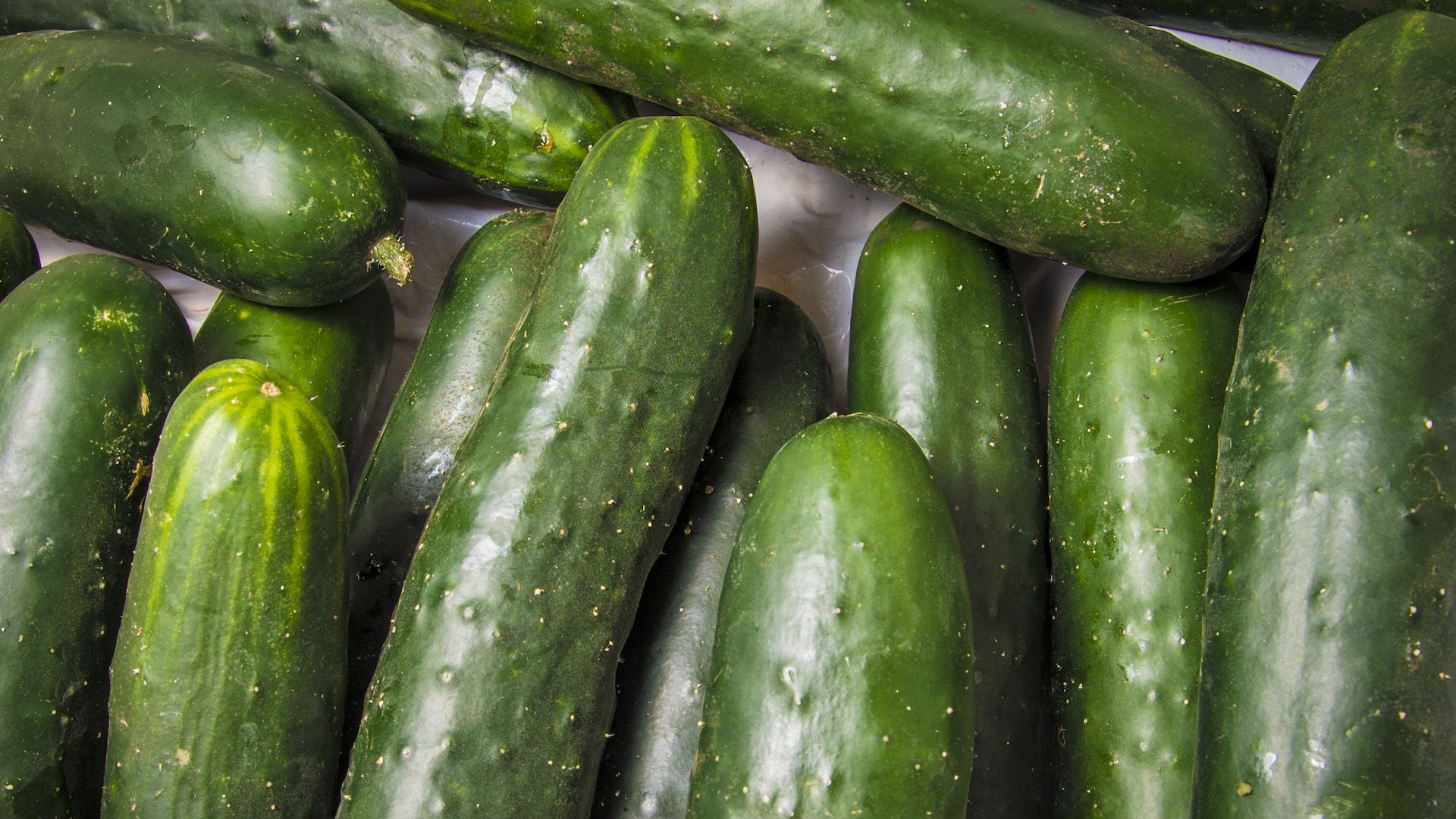
Cucumbers contaminated with Salmonella bacteria have been tied to an outbreak that has affected at least 162 people in the United States.
Of these, 54 people have been hospitalized and none have died, the Centers for Disease Control and Prevention (CDC) reported Wednesday (June 5).
The agency noted that the total number of sick people is likely higher than reported. That's because some people recover from Salmonella infection without medical care, and it can take weeks to deduce that confirmed cases of the illness are connected to an ongoing outbreak.
The specific type of Salmonella linked to cucumbers is called Salmonella Africana. In addition, health officials are investigating a second outbreak tied to a slightly different form of the bacteria, called Salmonella Braenderup. Under a microscope, the structures that appear on the surfaces of these two types of bacteria look different, enabling scientists to tell them apart.
Related: Dangerous 'superbugs' are a growing threat, and antibiotics can't stop their rise. What can?
Investigators are now working to figure out if the Braenderup outbreak — which has sickened at least 158 people so far — is also tied to cucumbers.
"The two outbreaks share several similarities, including where and when illnesses occurred and the demographics of ill people," the CDC reported. "Information will be provided on the source of the Salmonella Braenderup outbreak as it becomes available."
Infection with Salmonella bacteria can cause diarrhea, fever and stomach cramps within hours to days of infection. In addition to causing gastrointestinal problems, the bacteria can sometimes invade other parts of the body, such as the blood, bones or nervous system. In such severe cases, the infection can be fatal.
Most people recover from Salmonella infection, or salmonellosis, without antibiotics, but others face a high risk of severe infections and may need treatment. These people include those with weakened immune systems, infants, older people, and middle-aged and older adults with conditions such as heart disease.
So far, the Salmonella Africana outbreak has affected people in 25 states and the District of Columbia. Their illnesses started between mid-March and mid-May. State and local authorities have interviewed 65 people about foods they ate prior to getting sick, and of these, 47 said they'd eaten cucumbers.
A genetic analysis suggested that the bacteria that sickened people were closely related, implying that "people in this outbreak likely got sick from the same type of food," the CDC wrote. The analysis also suggested that the bacteria show resistance to certain antibiotics, so doctors should keep that in mind when treating patients. Antibiotic resistance makes bacteria less vulnerable to the effects of antibiotics, meaning clinicians must then find a drug that the microbe still reacts to.
As part of the ongoing investigation, officials from the Pennsylvania Department of Agriculture tested cucumbers for Salmonella. They found that cucumbers sold by Fresh Start Produce Sales Inc. of Delray Beach, Florida, tested positive for the microbe. This resulted in a recall of recent batches of cucumbers, the details of which are on the Food and Drug Administration website.
"Further testing is underway to determine if the strain of Salmonella from the cucumber sample is the same strain that is making people sick," the CDC noted. The agency will announce if this is confirmed, but in the meantime, the CDC advises people not to eat, sell or serve recalled cucumbers.
This article is for informational purposes only and is not meant to offer medical advice.
Ever wonder why some people build muscle more easily than others or why freckles come out in the sun? Send us your questions about how the human body works to community@livescience.com with the subject line "Health Desk Q," and you may see your question answered on the website!







